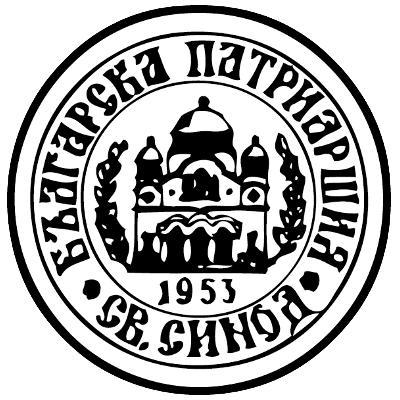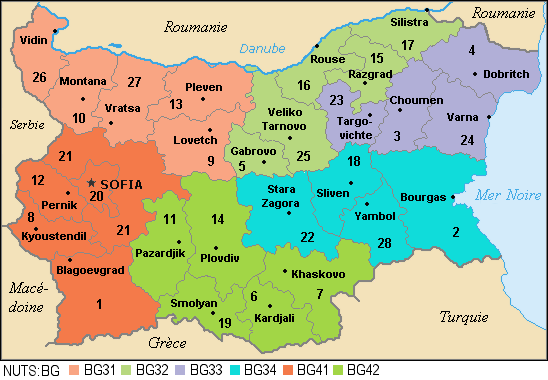|
Chelopech Municipality
Chelopech Municipality is a municipality in Sofia Province, Bulgaria. The Chelopech Municipality includes only one village - Chelopech, which is located on the southern side of the Balkan Mountains, on the main road from the capital Sofia to Burgas. It borders Zlatitsa Municipality, Chavdar Municipality, Mirkovo Municipality and Etropole Municipality.Chelopech from Visit to Bulgaria web site Demographics According to December 2018, there are 1,526 people residing in Chelopech, most of whom ethnic (95%), followed by (4%).[...More Info...] [...Related Items...] OR: [Wikipedia] [Google] [Baidu] |
Municipalities Of Bulgaria
The 28 Provinces of Bulgaria, provinces of Bulgaria are divided into 265 municipalities (община, ''obshtina''). Municipalities typically comprise multiple towns, villages and settlements and are governed by a mayor who is elected by popular majority vote for a four-year term, and a municipal council which is elected using proportional representation for a four-year term. The creation of new municipalities requires that they must be created in a territory with a population of at least 6,000 and created around a designated settlement. They must also be named after the settlement that serves as the territory's administrative center, among other criteria. The council of a municipality is further permitted to create administrative subdivisions: mayoralties (''kmetstvo''), settlements (''naseleno myasto''), and wards or quarters (''rayon''). Mayoralties are overseen by elected mayors and typically comprises one or more villages or towns; they must contain a population of at leas ... [...More Info...] [...Related Items...] OR: [Wikipedia] [Google] [Baidu] |
Etropole Municipality
Etropole ( bg, Етрополе, ) is a town in western Bulgaria, part of Sofia Province. It is located close to the northern slopes of the Balkan Mountains in the valley of the Iskar River, from Sofia. History The area was first settled by the Thracian tribe of the Triballi in the 7th or 6th century BC due to its position as an important crossroad connecting the Danube with Macedonia and Thrace close to two key Balkan passes. The forces of Philip II of Macedon (339 BC), Alexander the Great (335 BC), the Celts and the Roman legions passed through the valley in the Antiquity. The region developed as a centre of trade and economy, as evidenced by findings of Macedonian and Greek coins, Greek ceramics, luxurious items and decorations. The ore ledges brought Saxon miners to the town in the 16th century. They introduced the ''samokov'' hammer technology and helped for the area's establishment as a centre of craftsmanship and mining, with gold, copper, silver and iron being extracted ... [...More Info...] [...Related Items...] OR: [Wikipedia] [Google] [Baidu] |
Christians
Christians () are people who follow or adhere to Christianity, a monotheistic Abrahamic religion based on the life and teachings of Jesus Christ. The words ''Christ'' and ''Christian'' derive from the Koine Greek title ''Christós'' (Χριστός), a translation of the Biblical Hebrew term '' mashiach'' (מָשִׁיחַ) (usually rendered as ''messiah'' in English). While there are diverse interpretations of Christianity which sometimes conflict, they are united in believing that Jesus has a unique significance. The term ''Christian'' used as an adjective is descriptive of anything associated with Christianity or Christian churches, or in a proverbial sense "all that is noble, and good, and Christ-like." It does not have a meaning of 'of Christ' or 'related or pertaining to Christ'. According to a 2011 Pew Research Center survey, there were 2.2 billion Christians around the world in 2010, up from about 600 million in 1910. Today, about 37% of all Christians live in the A ... [...More Info...] [...Related Items...] OR: [Wikipedia] [Google] [Baidu] |
Islam In Bulgaria
Islam in Bulgaria is a minority religion and the second largest religion in the country after Christianity. According to the 2021 Census, the total number of Muslims in Bulgaria stood at 638,7082012 Bulgarian census (in Bulgarian) corresponding to 10.8% of the population.Bulgaria The World Factbook. CIA According to a 2017 estimate, Muslims make up 15% of the population. Ethnically, Muslims in Bulgaria are , |
Protestantism In Bulgaria
Protestantism is a branch of Christianity that follows the theological tenets of the Protestant Reformation, a movement that began seeking to reform the Catholic Church from within in the 16th century against what its followers perceived to be growing errors, abuses, and discrepancies within it. Protestantism emphasizes the Christian believer's justification by God in faith alone (') rather than by a combination of faith with good works as in Catholicism; the teaching that salvation comes by divine grace or "unmerited favor" only ('); the priesthood of all faithful believers in the Church; and the ''sola scriptura'' ("scripture alone") that posits the Bible as the sole infallible source of authority for Christian faith and practice. Most Protestants, with the exception of Anglo-Papalism, reject the Catholic doctrine of papal supremacy, but disagree among themselves regarding the number of sacraments, the real presence of Christ in the Eucharist, and matters of ecclesia ... [...More Info...] [...Related Items...] OR: [Wikipedia] [Google] [Baidu] |
Catholicism In Bulgaria
The Catholic Church is the fourth largest religious congregation in Bulgaria, after Eastern Orthodoxy, Islam and Protestantism. Its roots in the country date to the Middle Ages and are part of the worldwide Catholic Church, under the spiritual leadership of the Pope in Rome. Location and number In the Bulgarian census of 2011, a total of 48,945 people declared themselves to be Catholics, up from 43,811 in the previous census of 2001 though down as compared to 53,074 in 1992. The vast majority of the Catholics in Bulgaria in 2001 were ethnic Bulgarians and the rest belonged to a number of other ethnic groups such as Croatians, Italians, Arabs and Germans. Bulgarian Catholics live predominantly in the regions of Svishtov and Plovdiv and are mostly descendants of the heretical Christian sect of the Paulicians, which converted to Catholicism in the 16th and 17th centuries. The largest Catholic Bulgarian town is Rakovski in Plovdiv Province. Ethnic Bulgarian Catholics known as th ... [...More Info...] [...Related Items...] OR: [Wikipedia] [Google] [Baidu] |
Bulgarian Orthodox Church
The Bulgarian Orthodox Church ( bg, Българска православна църква, translit=Balgarska pravoslavna tsarkva), legally the Patriarchate of Bulgaria ( bg, Българска патриаршия, links=no, translit=Balgarska patriarshiya), is an autocephalous Orthodox jurisdiction. It is the oldest Slavic Orthodox church, with some 6 million members in Bulgaria and between 1.5 and 2 million members in a number of European countries, the Americas, Australia, New Zealand and Asia. It was recognized as autocephalous in 1945 by the Ecumenical Patriarchate of Constantinople. History Early Christianity The Bulgarian Orthodox Church has its origin in the flourishing Christian communities and churches set up in the Balkans as early as the first centuries of the Christian era. Christianity was brought to the Balkans by the apostles Paul and Andrew in the 1st century AD, when the first organised Christian communities were formed. By the beginning of the ... [...More Info...] [...Related Items...] OR: [Wikipedia] [Google] [Baidu] |
Romani People
The Romani (also spelled Romany or Rromani , ), colloquially known as the Roma, are an Indo-Aryan ethnic group, traditionally nomadic itinerants. They live in Europe and Anatolia, and have diaspora populations located worldwide, with significant concentrations in the Americas. In the English language, the Romani people are widely known by the exonym Gypsies (or Gipsies), which is considered pejorative by many Romani people due to its connotations of illegality and irregularity as well as its historical use as a racial slur. For versions (some of which are cognates) of the word in many other languages (e.g., , , it, zingaro, , and ) this perception is either very small or non-existent. At the first World Romani Congress in 1971, its attendees unanimously voted to reject the use of all exonyms for the Romani people, including ''Gypsy'', due to their aforementioned negative and stereotypical connotations. Linguistic and genetic evidence suggests that the Roma origina ... [...More Info...] [...Related Items...] OR: [Wikipedia] [Google] [Baidu] |
Bulgarians
Bulgarians ( bg, българи, Bǎlgari, ) are a nation and South Slavs, South Slavic ethnic group native to Bulgaria and the rest of Southeast Europe. Etymology Bulgarians derive their ethnonym from the Bulgars. Their name is not completely understood and difficult to trace back earlier than the 4th century AD, but it is possibly derived from the Proto-Turkic word ''*bulģha'' ("to mix", "shake", "stir") and its derivative ''*bulgak'' ("revolt", "disorder"). Alternative etymologies include derivation from a compound of Proto-Turkic (Oghuric languages, Oghuric) ''*bel'' ("five") and ''*gur'' ("arrow" in the sense of "Turkic tribal confederations, tribe"), a proposed division within the Utigurs or Onogurs ("ten tribes"). Citizenship According to the Art.25 (1) of Constitution of Bulgaria, a Bulgarian citizen shall be anyone born to at least one parent holding a Bulgarian citizenship, or born on the territory of the Republic of Bulgaria, should they not be entitled to any oth ... [...More Info...] [...Related Items...] OR: [Wikipedia] [Google] [Baidu] |
Mirkovo Municipality
Mirkovo ( bg, Мирково, ) is a village in western Bulgaria, part of Sofia Province. It is the administrative centre of Mirkovo Municipality, which lies in the central eastern part of Sofia Province. The village is located in the eastern part of the Zlatitsa– Pirdop valley, 63 kilometres east of the capital Sofia, at the southern foot of the 1,787-metre Etropolska Baba Peak in the Etropole part of the Balkan Mountains. The surrounding area has been inhabited since the Neolithic, with the Thracians and Romans populating it in Antiquity and the Slavs and Bulgars in the Middle Ages, when it was part of the First Bulgarian Empire and Second Bulgarian Empire. The village itself, however, was first mentioned in Ottoman registers in 1430 and 1751 as ''Mirkuva''; the name is thought to originate from the South Slavic personal name ''Mirko'' with the placename suffix -ovo. A monastical school was established in 1825, during the Bulgarian National Revival, and the locals t ... [...More Info...] [...Related Items...] OR: [Wikipedia] [Google] [Baidu] |
Provinces Of Bulgaria
The provinces of Bulgaria ( bg, области на България, oblasti na Bǎlgarija) are the first-level administrative subdivisions of the country. Since 1999, Bulgaria has been divided into 28 provinces ( bg, области, links=no – ''oblasti;'' singular: – '' oblast''; also translated as "regions") which correspond approximately to the 28 districts (in bg, links=no, окръг – '' okrǎg'', plural: – ''okrǎzi''), that existed before 1987. The provinces are further subdivided into 265 municipalities (singular: – '' obshtina'', plural: – ''obshtini''). Sofia – the capital city of Bulgaria and the largest settlement in the country – is the administrative centre of both Sofia Province and Sofia City Province (Sofia- grad). The capital is included (together with three other cities plus 34 villages) in Sofia Capital Municipality (over 90% of whose population lives in Sofia), which is the sole municipality comprising Sofia City province. Term ... [...More Info...] [...Related Items...] OR: [Wikipedia] [Google] [Baidu] |
Chavdar Municipality
Chavdar Municipality is one of the municipalities in Sofia Province, Bulgaria. The seat is at Chavdar, Sofia Province Chavdar ( bg, Чавдар, ) is a village situated in a mountain region, in the eastern part of Sofia Province, Bulgaria. It is the administrative center of Chavdar Municipality. The municipality is located in the sub-Balkan Zlatitsa-Pirdop Basi .... Demographics Religion According to the latest Bulgarian census of 2011, the religious composition, among those who answered the optional question on religious identification, was the following: References Municipalities in Sofia Province {{bulgaria-geo-stub ... [...More Info...] [...Related Items...] OR: [Wikipedia] [Google] [Baidu] |





